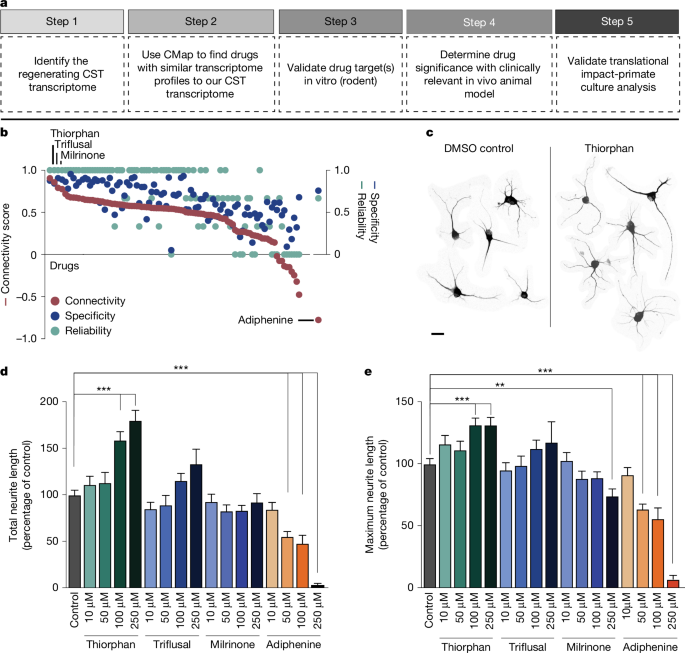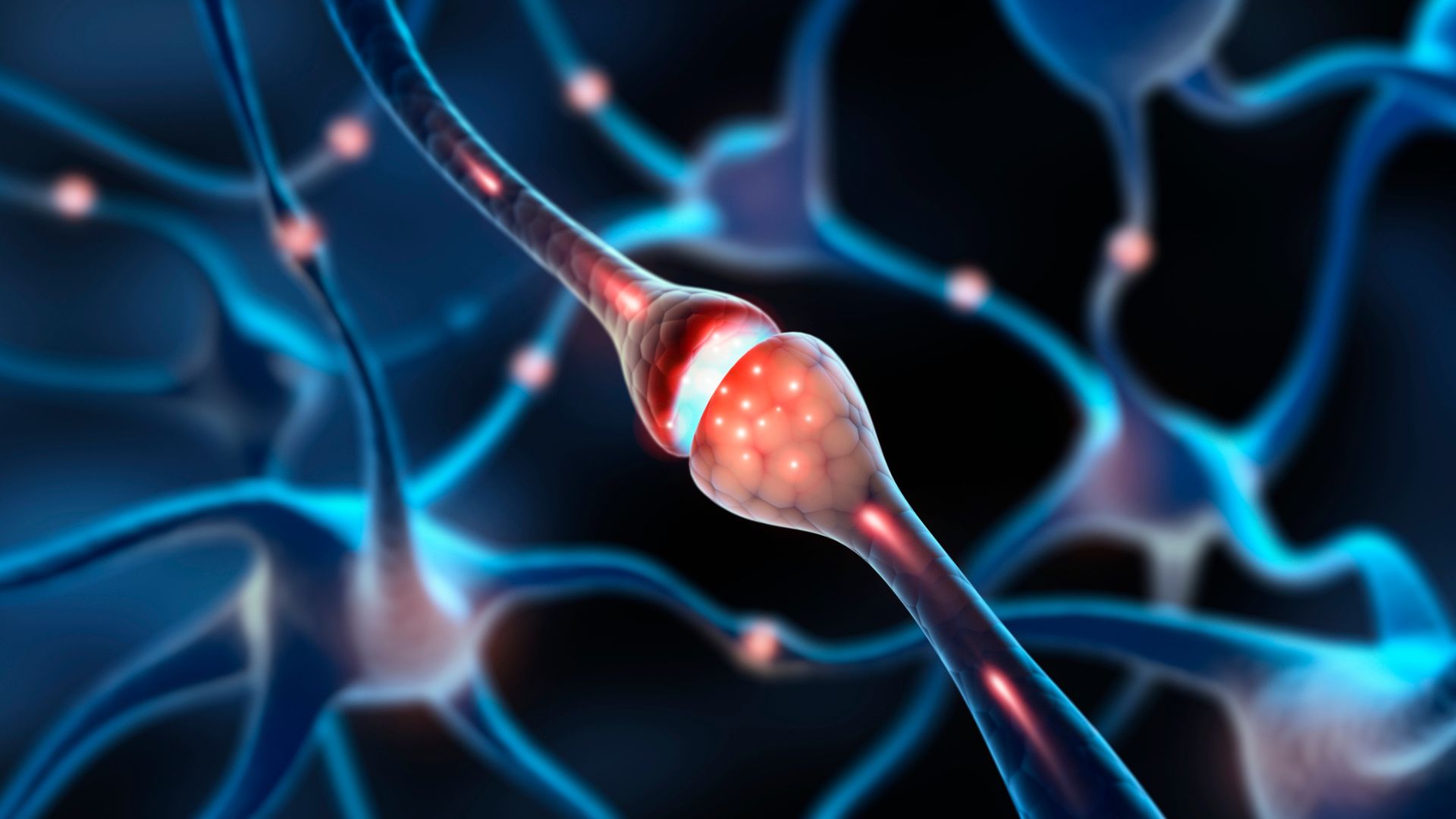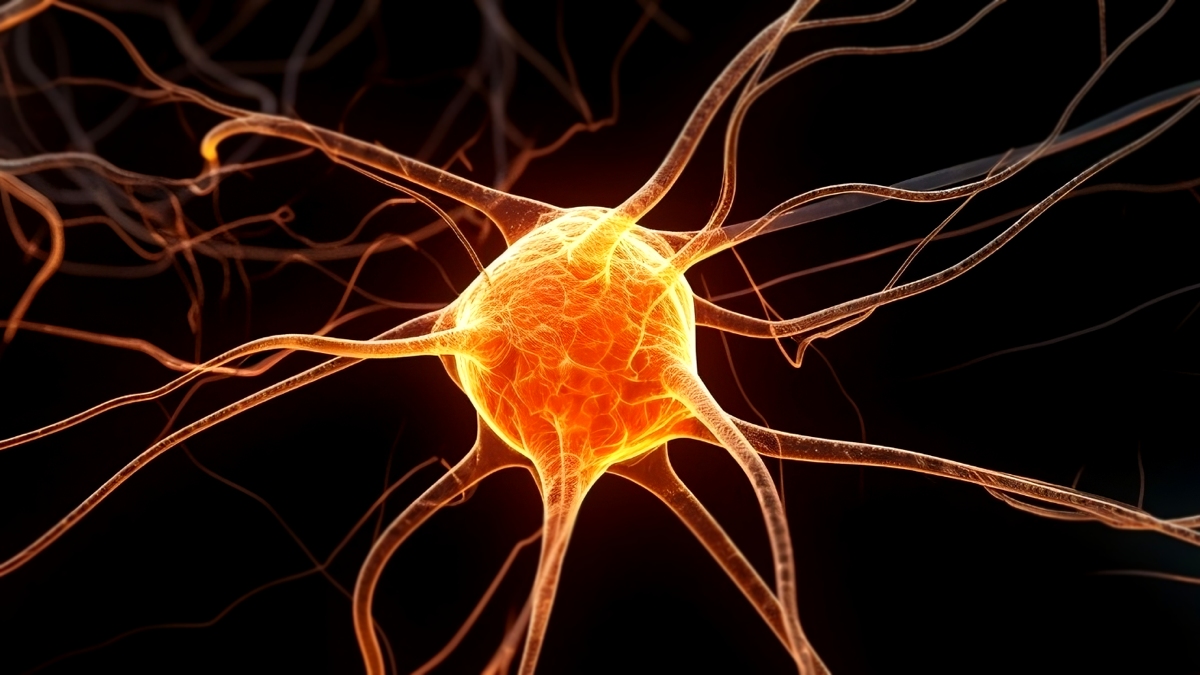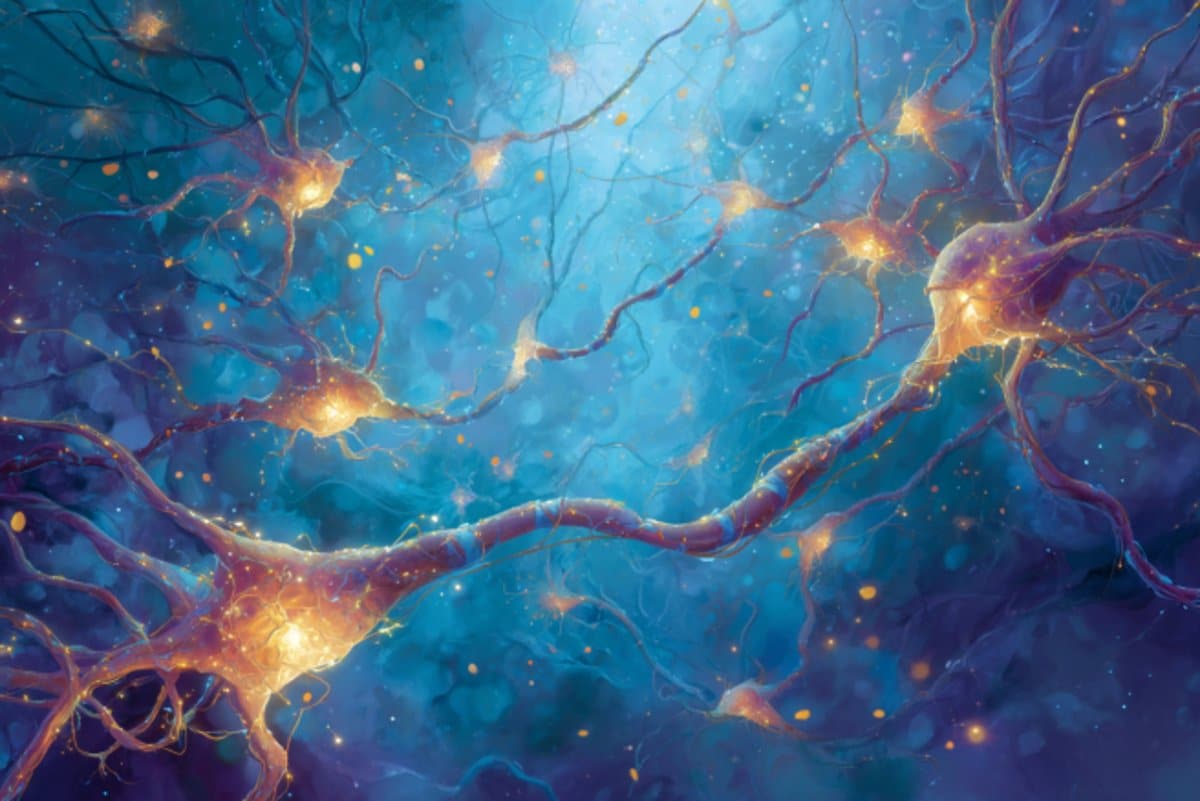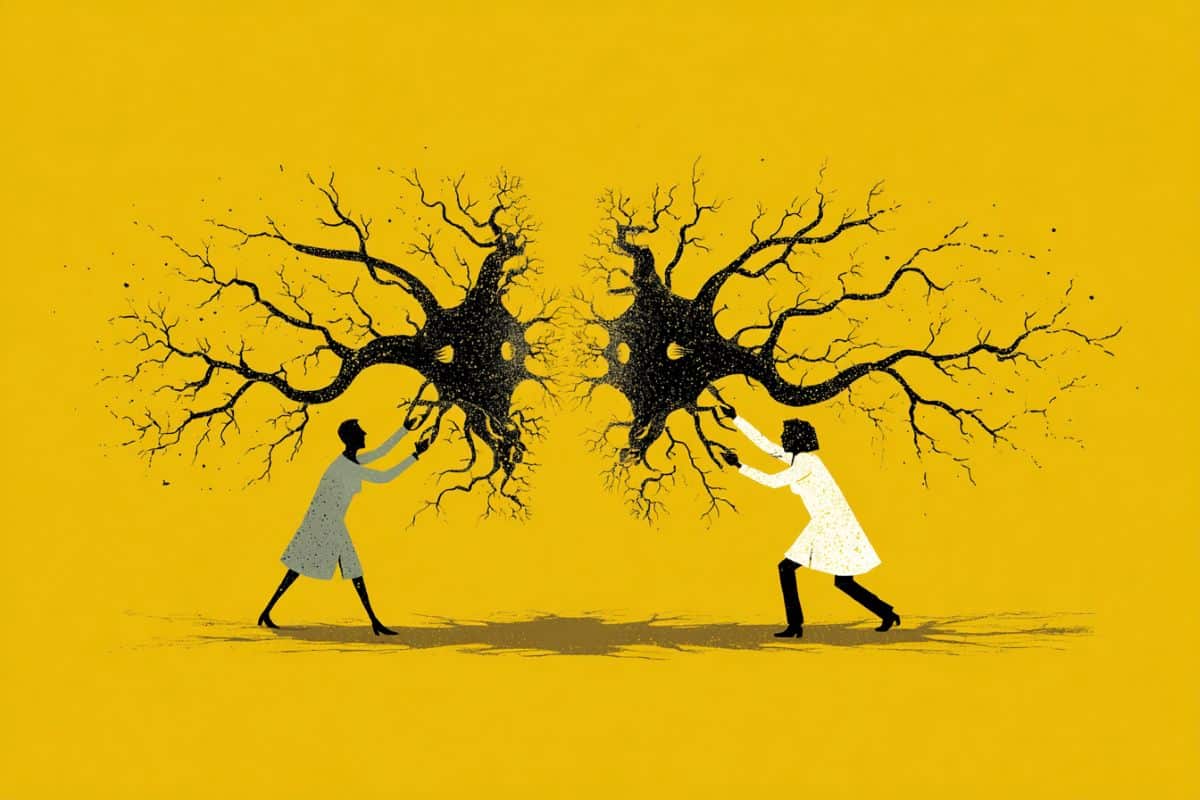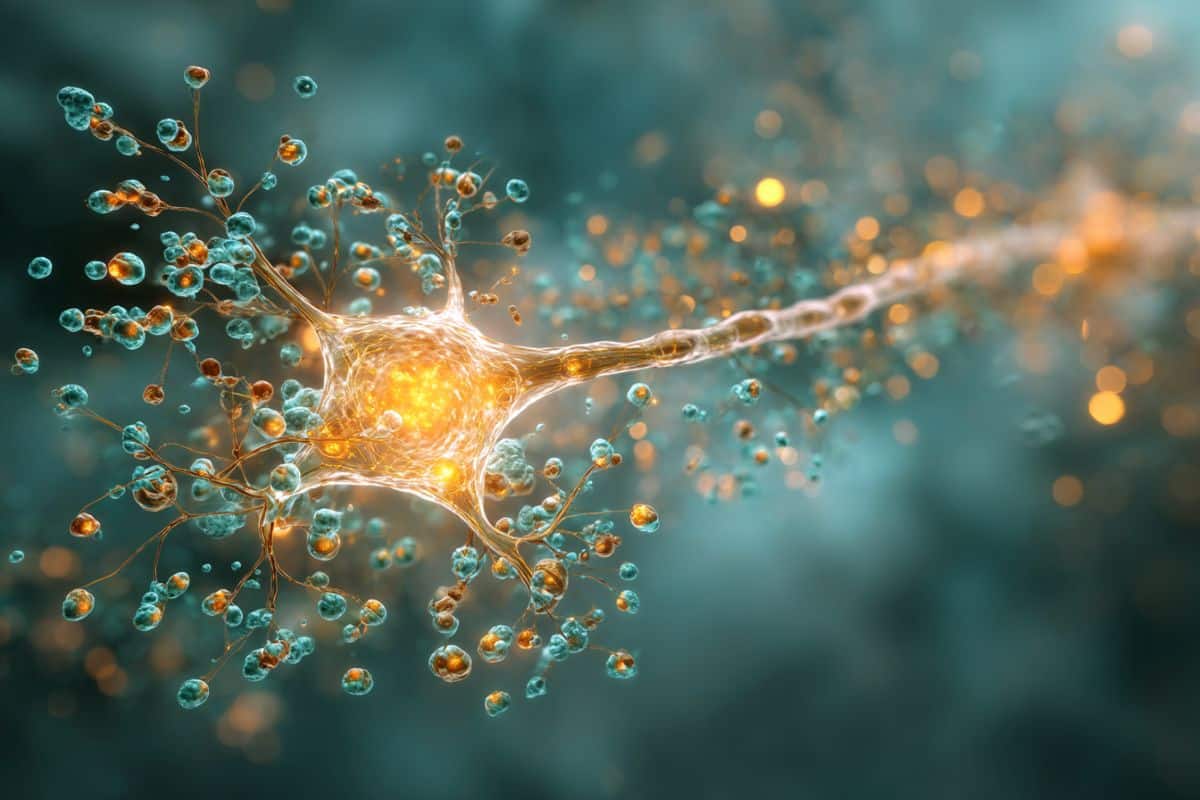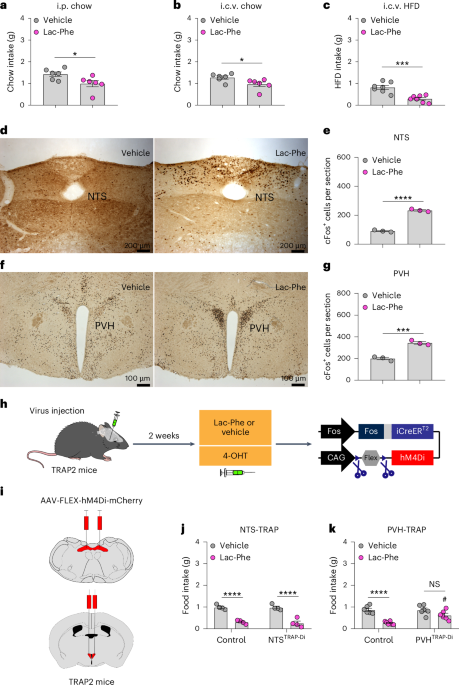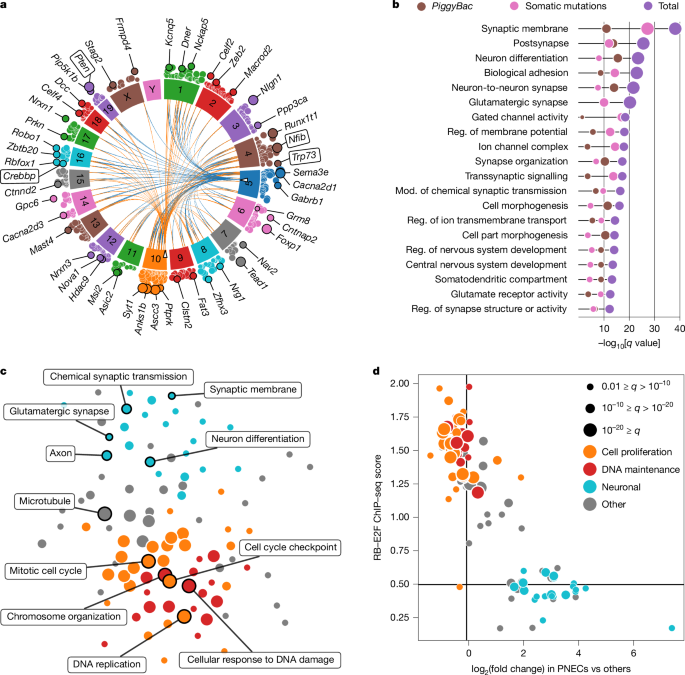We adopted a five-step pipeline to identify candidates for enhancing neural repair with a streamlined path that could lead to human testing (Fig. 1a). Step 1 involves characterizing the transcriptomic state or ‘signature’ of a cell type that exhibits a beneficial biological effect. In this case, we used the transcriptome of corticospinal motor neurons that are capable of regeneration after SCI. …
Read More »Tag Archives: Neurons
China’s cutting-edge camera captures neurons ‘kissing’ in real time
Chinese scientists have for the first time captured the fleeting moment when neurons “kiss” each other, a millisecond-scale event that lies at the heart of how the brain transmits signals. The finding, achieved with a revolutionary imaging technology, has resolved a decades-long debate about how synaptic vesicles release neurotransmitters. Researchers from the University of Science and Technology of China (USTC) …
Read More »Scientists Just Discovered a Whole New Type of Connection Between Neurons : ScienceAlert
Super-resolution microscopes have revealed a whole new type of connection between neurons in mouse and human brains. In the lab, Johns Hopkins University neuroscientist Minhyeok Chang and colleagues identified tiny tubular bridges in the branching tips of cultured neurons. In further tests on mouse models of Alzheimer’s disease, it appeared the bridges were shuttling calcium and disease-related molecules directly between …
Read More »Astrocytes, Not Neurons, Hold the Key to Emotional Memory
Summary: New research reveals that astrocytes — not neurons — are responsible for stabilizing emotional memories by re-engaging during recall. After an emotionally intense event, such as fear, specific astrocytes become biologically tagged with adrenoreceptors, making them responsive when the memory is later reactivated. Blocking these astrocytes disrupts memory stability, while forcing them to activate exaggerates fear responses and causes …
Read More »Social Brain: Neurons That Decide Who Wins and Who Yields
Summary: Researchers have pinpointed specific brain cells that control how animals react to social defeat, offering new insight into the biology of dominance and submission. In male mice, neurons in the dorsomedial striatum—known as cholinergic interneurons—were found to regulate the “loser effect,” where past defeats lower an individual’s future social rank. When these neurons were removed, mice stopped exhibiting submissive …
Read More »Neurons Burn Fat for Fuel: Discovery Could Reverse Brain Damage
Summary: Scientists have shown that neurons don’t rely solely on sugar for energy — they can also burn fat. When energy demand spikes, neurons even create their own fats by recycling parts of themselves, a process dependent on a key protein called DDHD2. In Hereditary Spastic Paraplegia 54 (HSP54), DDHD2 malfunctions, cutting off this energy source and impairing neuron function. …
Read More »The neurons that let us see what isn’t there
Earlier work had hinted at such cells, but Shin and colleagues show systematically that they’re not rare oddballs—they’re a well-defined, functionally important subpopulation. “What we didn’t know is that these neurons drive local pattern completion within primary visual cortex,” says Shin. “We showed that those cells are causally involved in this pattern completion process that we speculate is likely involved …
Read More »Lac-Phe induces hypophagia by inhibiting AgRP neurons in mice
Eriksson, K. F. & Lindgarde, F. Prevention of type 2 (non-insulin-dependent) diabetes mellitus by diet and physical exercise. The 6-year Malmö feasibility study. Diabetologia 34, 891–898 (1991). Article CAS PubMed Google Scholar Pan, X. R. et al. Effects of diet and exercise in preventing NIDDM in people with impaired glucose tolerance. The Da Qing IGT and Diabetes Study. Diabetes Care …
Read More »Illusion-Making Neurons Show How the Brain Constructs Reality
Summary: Scientists have discovered specialized IC-encoder neurons that make the brain “see” illusions, such as squares or triangles that aren’t truly there. These neurons receive top-down instructions from higher brain areas and then fill in missing contours in the visual cortex, actively constructing what we perceive. Experiments showed that stimulating these neurons alone could reproduce the same brain activity as …
Read More »Functional synapses between neurons and small cell lung cancer
Mice This study was performed in accordance with FELASA recommendations and with European Union and German guidelines. The experiments were approved by the local ethics committee on animal experiments (Landesamt für Natur, Umwelt und Verbraucherschutz Nordrhein-Westfalen). Mice were housed in groups of up to five animals per cage and supplied with standard pellet food and water ad libitum with a …
Read More »